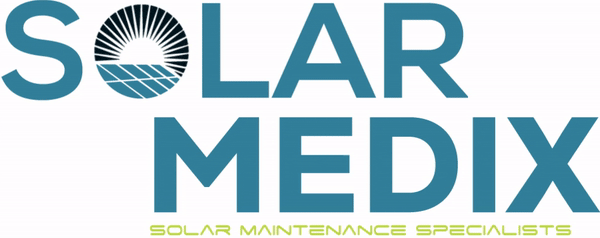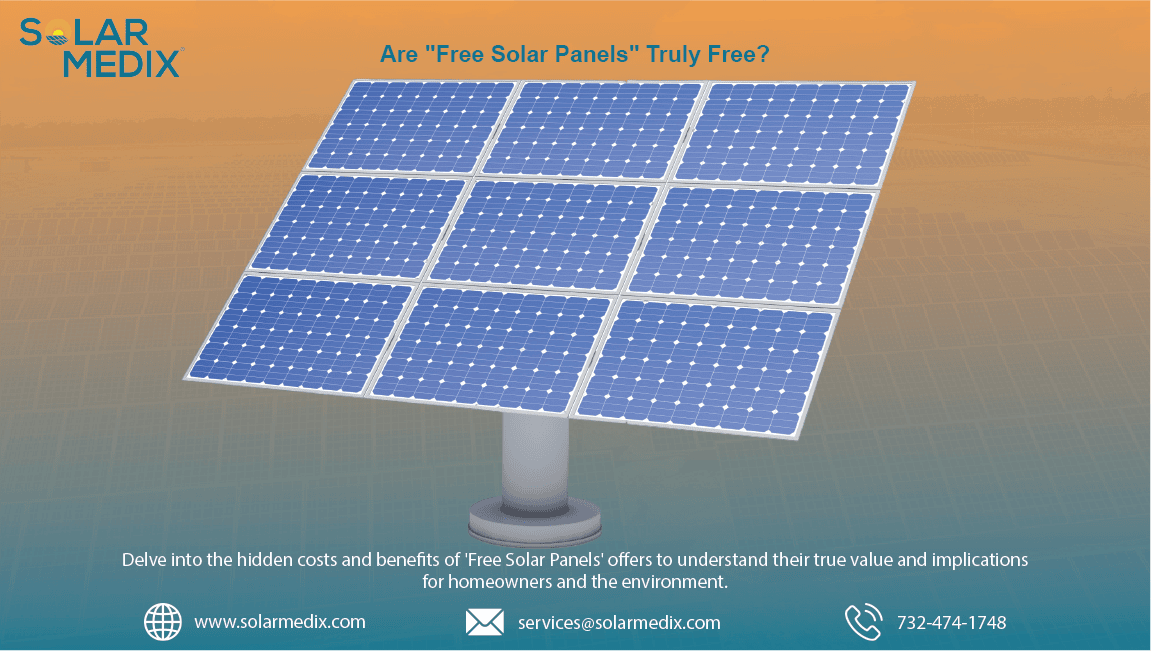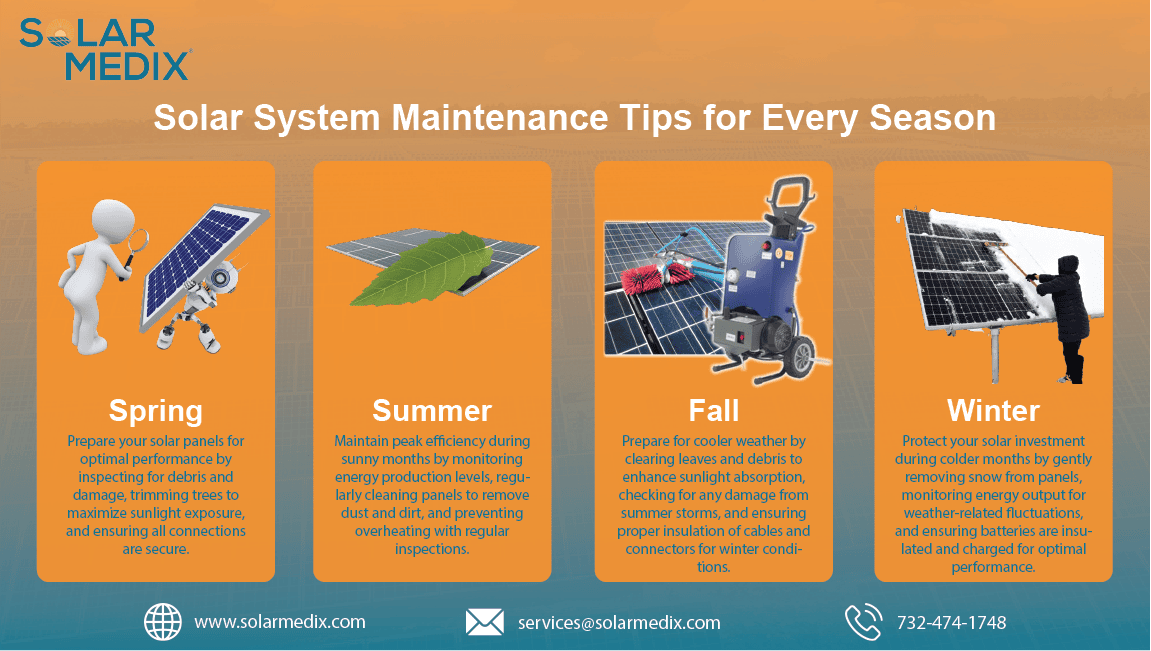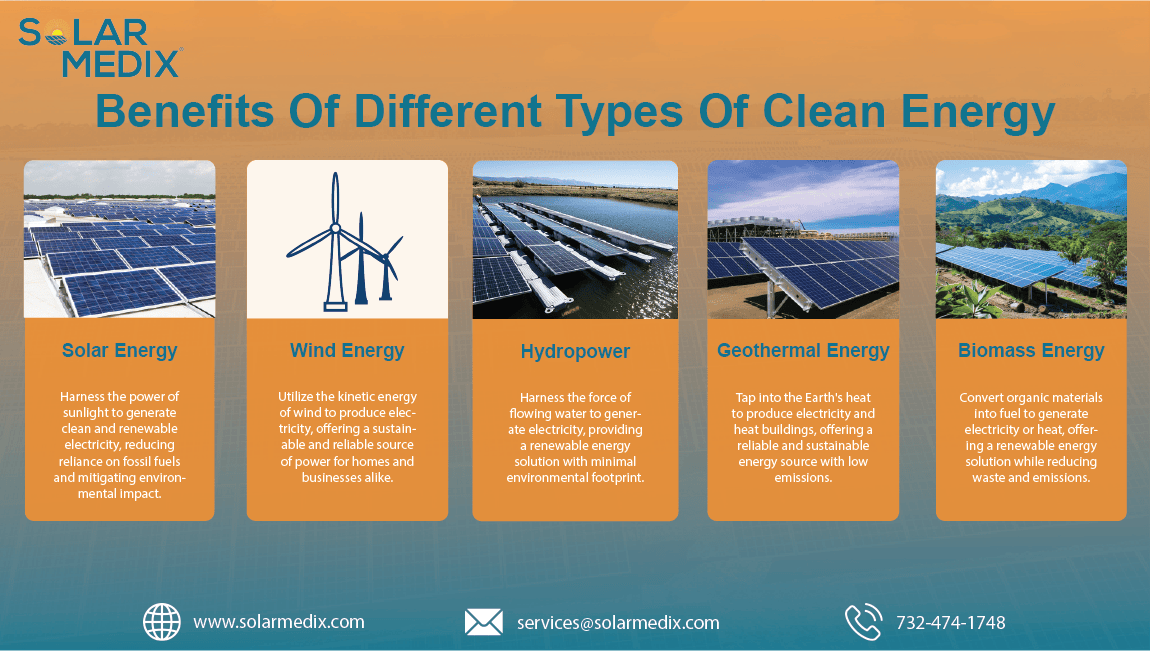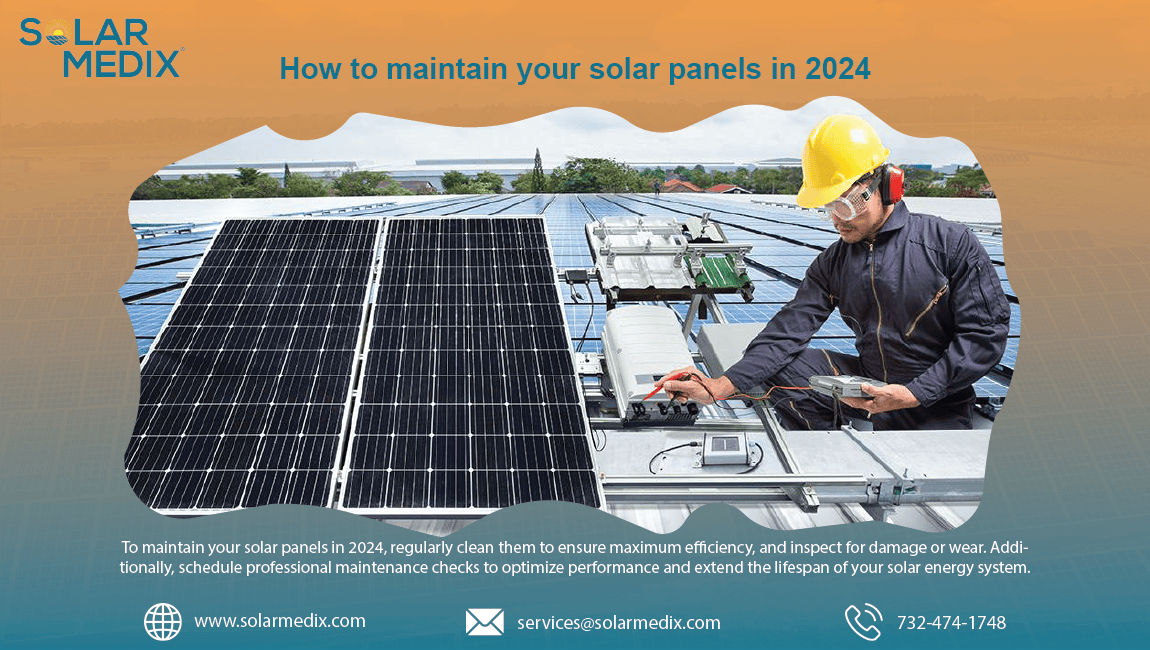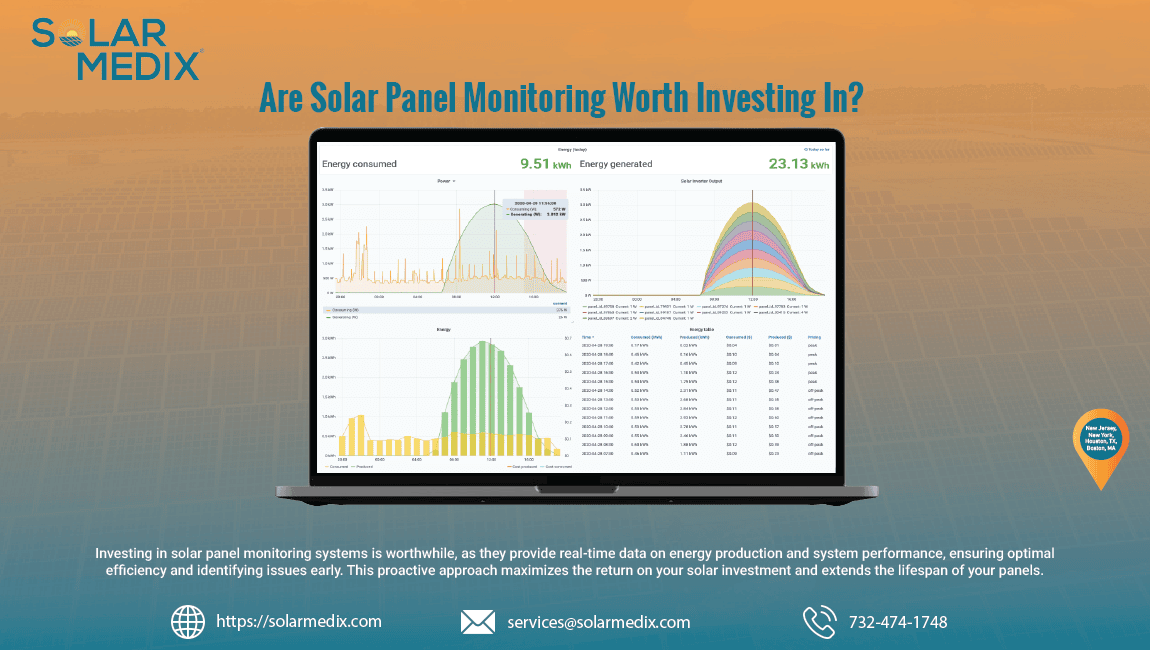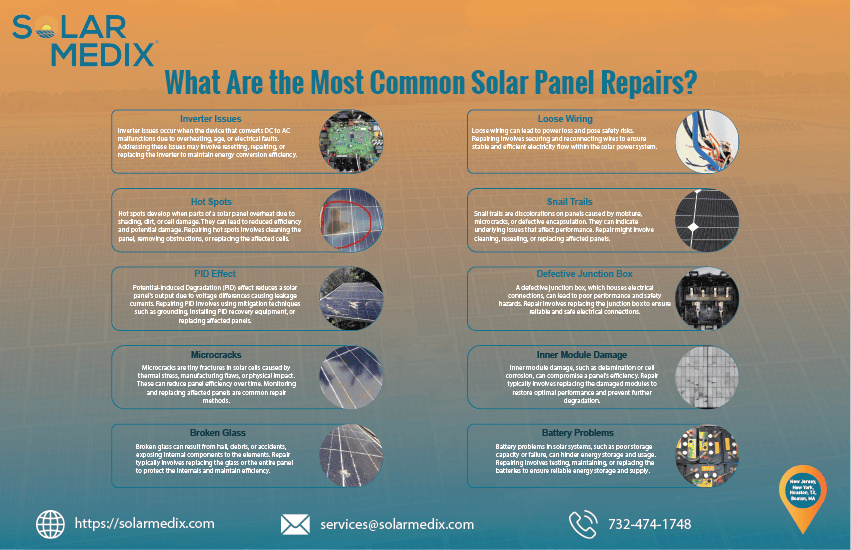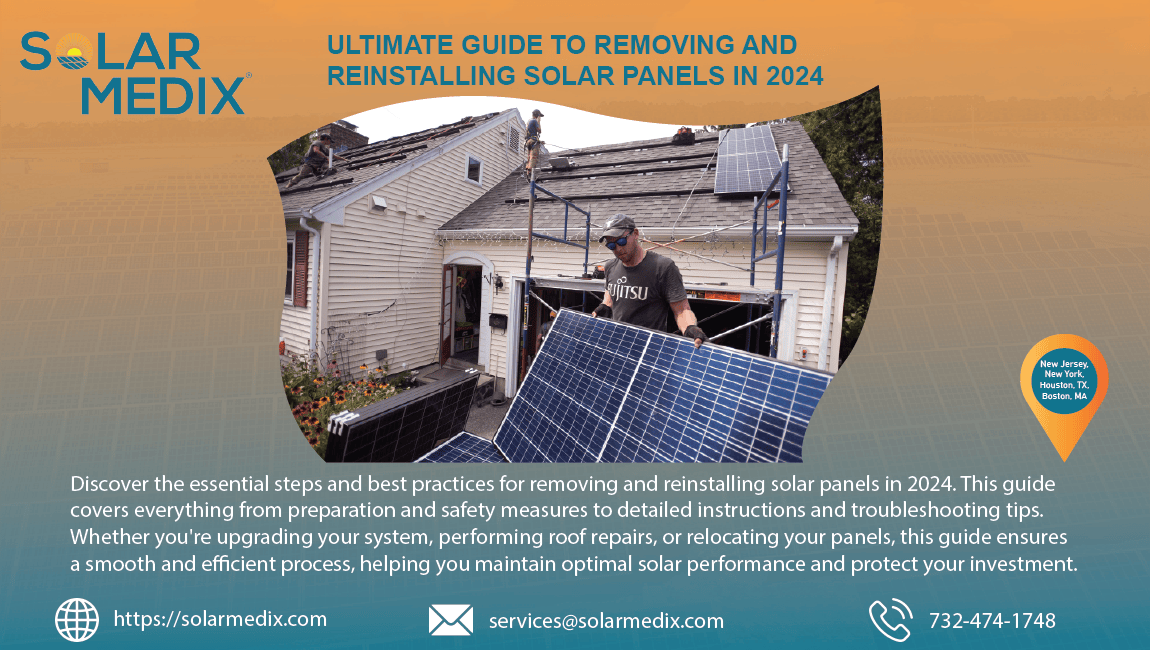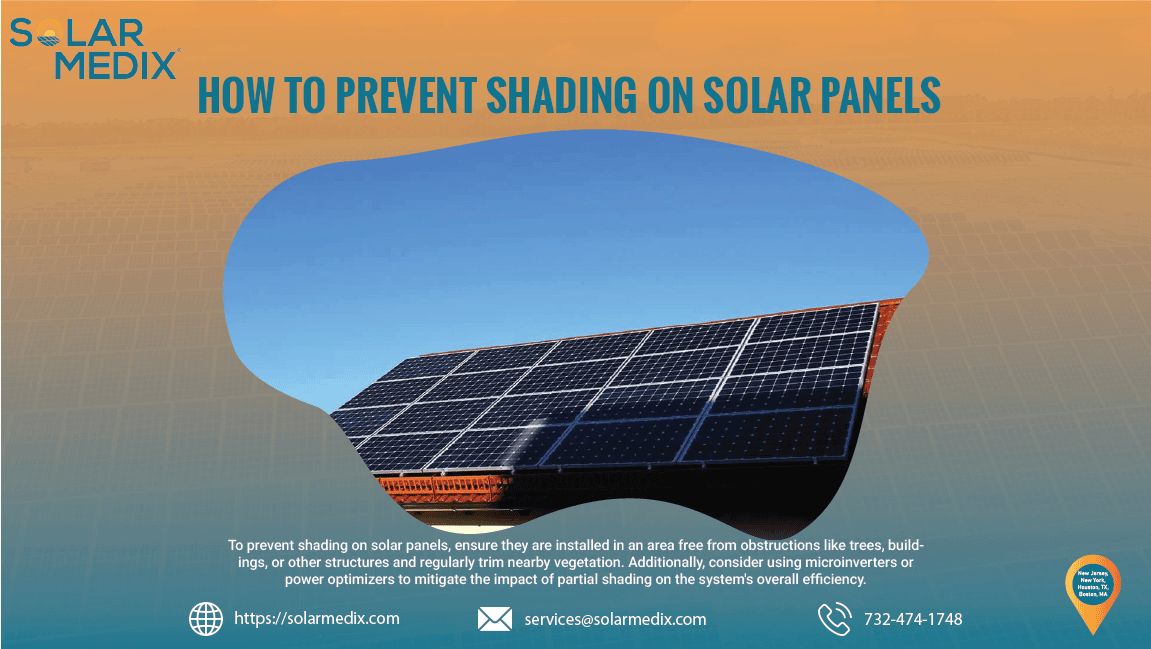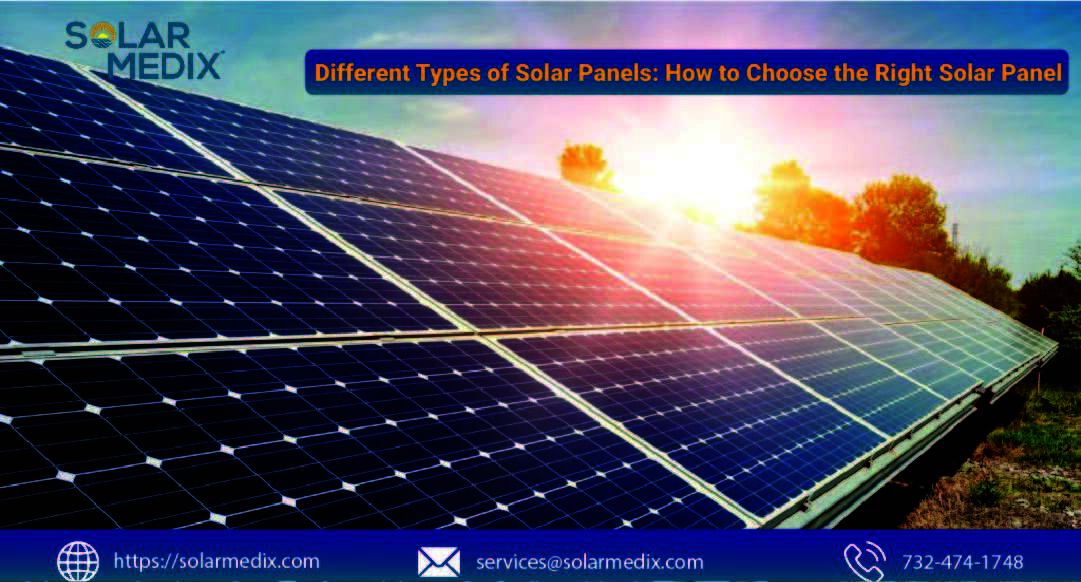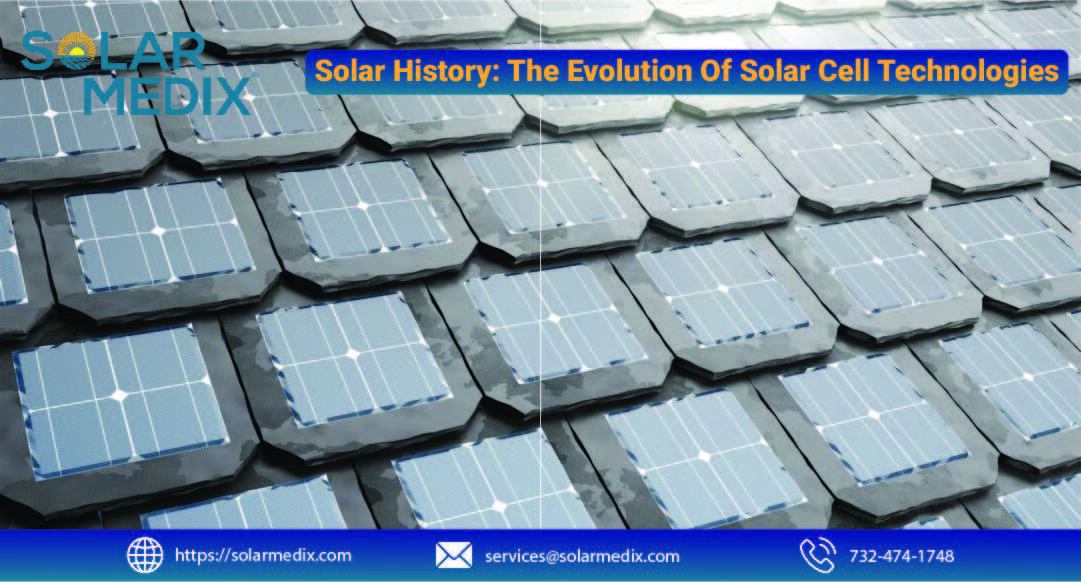Solar energy is regarded as a clean and renewable source of power. It can help homeowners save money on their electricity bills. However, there are many questions and concerns about advertisements claiming “FREE SOLAR PANELS.” Many people question the legitimacy of these offers, wondering if they are genuine or potentially misleading.
Solar Medix has over 17 years of experience in the solar industry. We are dedicated to helping you understand the truth behind these claims with our expertise and insights. That’s why, in this article, we are going to reveal the reality behind these offers. We will also discuss ways in which you can effectively lower your costs for solar installation.
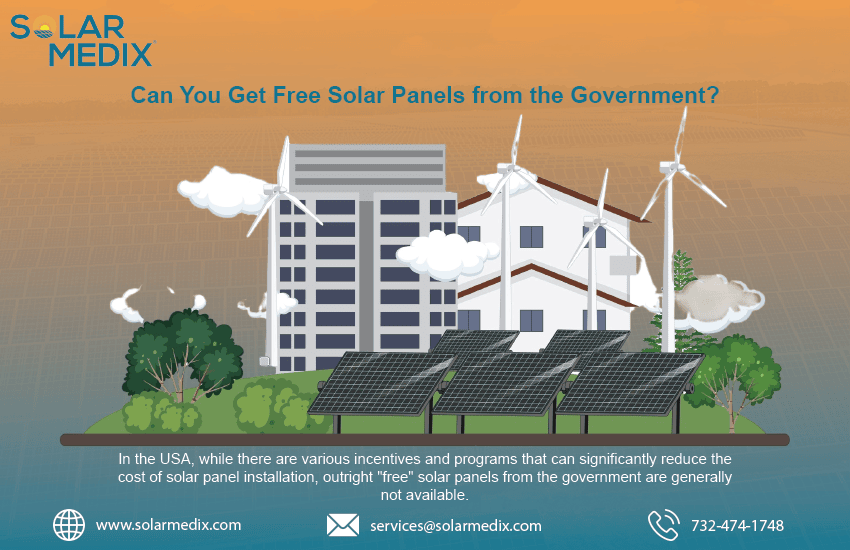
Can You Get Free Solar Panels from the Government?
There’s a general misconception about the government providing free solar panels to homeowners. This belief is based on misleading advertisements that suggest that government programs provide free solar panels.
Is the government really giving “free solar panels”? Or is there any type of support available?
Government Incentives, Not Free Panels
The government is not giving away free solar panels. However, there are some incentives from the government to reduce the cost of solar installations. The most notable among them is the Federal Solar Investment Tax Credit (ITC). It allows homeowners to deduct 30% of the cost of their solar system from their federal taxes. This credit will apply to all systems installed and operational before December 31, 2032.
For example, if your solar system costs $20,000, you could potentially save $6,000 through the ITC.
Different states and local governments also offer rebates and incentives. Solar Renewable Energy Certificates (SRECs) and performance-based incentives by some states are an example. It allows homeowners to earn credits or payments for the energy generated by their solar systems.
In New Jersey, homeowners can sell SREC to utility companies. It can help them earn extra income of up to several hundred dollars per year.
These incentives lower the upfront cost of solar systems. However, this doesn’t mean that solar panels are FREE. You will still have to invest in solar panel installation. However, these incentives make it more affordable.
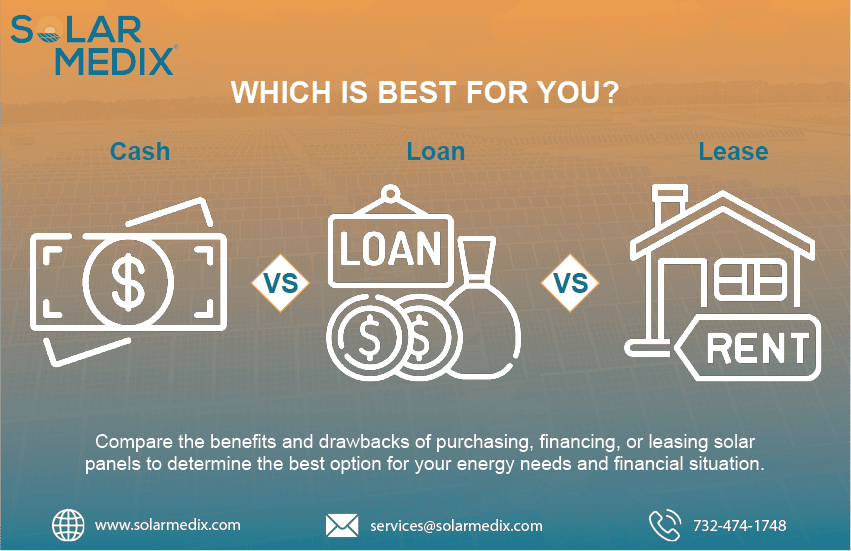
Cash Purchase, Loan, or Lease: Which is Best for You?
There are many options available for financing your solar system. You can choose between paying cash, taking a loan, or leasing. Each option has advantages and disadvantages.
But the question is, which option provides the best balance between cost and benefit, matching your situation?
Let’s figure it out:
Cash Purchase
Purchasing solar panels with cash payments is the best option. It provides the highest return on investment over time. Although you will bear a high initial cost.
It provides many financial benefits as you own the system. It will also provide you with federal and state incentives. You will not have to make any interest payments. Moreover, there are no monthly fees that maximize your savings.
For example, the Solar Energy Industries Association (SEIA) conducted a study on it. According to it, a homeowner in Arizona who purchased a 6 kW solar system for $15,000 to $22,500 saved approximately $1,200 to $600 annually on their electricity bills. It can help them recoup their investment in about 10 years. The benefit can be as big as $7,000 in state and federal incentives.
Solar Loans
Solar loans are the best alternative for people unable to afford the upfront costs. This option lets you finance the purchase of your solar system and pay it off over time.
In most cases, solar loans require little to no down payment. It makes them feasible for many homeowners. However, interest rates for solar panels vary.
Consider John, a homeowner in California. He took out a solar loan for $20,000 at a 4% interest rate, for instance. He paid $200 monthly over 10 years. Despite the interest, John enjoyed net savings of $10,000 over 20 years. These savings came from lower electricity bills and tax incentives.
In the end, you will be paying more than in the case of a cash purchase. But, of course, you will still be availing of the benefits of ownership, tax credits, and, yes, long-term savings.
Leasing Solar Panels and PPAs
Solar leases and Power Purchase Agreements (PPAs) offer an appealing way to transition to solar power with no initial investment. Under these arrangements, a solar provider will install and maintain solar panels on your property. You won’t incur the costs of the system installation, but you will need to pay for the electricity it generates. Despite this, the rates for this electricity are generally lower than traditional utility rates.
Consider the case of a family in New Jersey who signed a 20-year PPA at a fixed rate of 12 cents per kWh. They began saving $50 per month on their energy bills compared to previous rates. However, it’s important to note that they did not qualify for tax incentives, which means their savings were confined to their energy expenses.
Additionally, it’s important to understand that with solar leases or PPAs, you do not own the solar system, and thus, you’re not eligible for any ownership-related tax incentives and rebates. While it might seem that these agreements provide immediate cost savings, they generally result in the least financial benefit over the long term compared to purchasing systems outright or through loans.
Furthermore, it’s advisable to consider that there might be some maintenance costs involved, depending on the terms of your agreement. Always review your contract details to understand any potential additional costs.
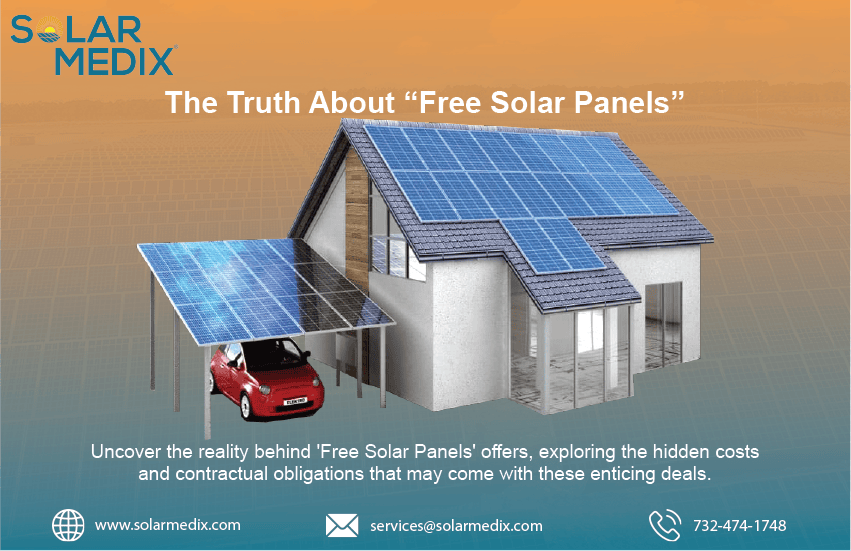
The Truth About “Free Solar Panels”
The term “free solar panels” is not more than a marketing tactic to attract customers. These offers generally involve some form of solar financing. For instance, there can be options like leases or PPAs with no upfront costs for installation.
What does “free” really mean in the context of solar panel offers, and are there hidden costs?
Here’s what these terms really mean:
Zero-Down Payment
Sometimes, companies advertise free solar panels as zero-down-payment options. This means that the company will install solar panels on your roof without any upfront money.
However, you will still need to enter into a financial agreement. It means you will still be paying for the electricity produced by the panels over time.
Ownership and Maintenance
In the case of most “free solar agreements,” you don’t own the solar panel. Instead, the company retains its ownership. As a result, they will maintain and repair the solar panel.
It might seem beneficial, but you will miss out on the incentive of ownership. These incentives include ICT and potential state rebates.
Long-Term Costs
Your free solar panel contract, or PPA, requires you to pay the company’s electricity bills throughout its duration. You will still be saving money compared to your current utility bills. However, the company can also add other clauses, like increasing electricity unit rates over time.
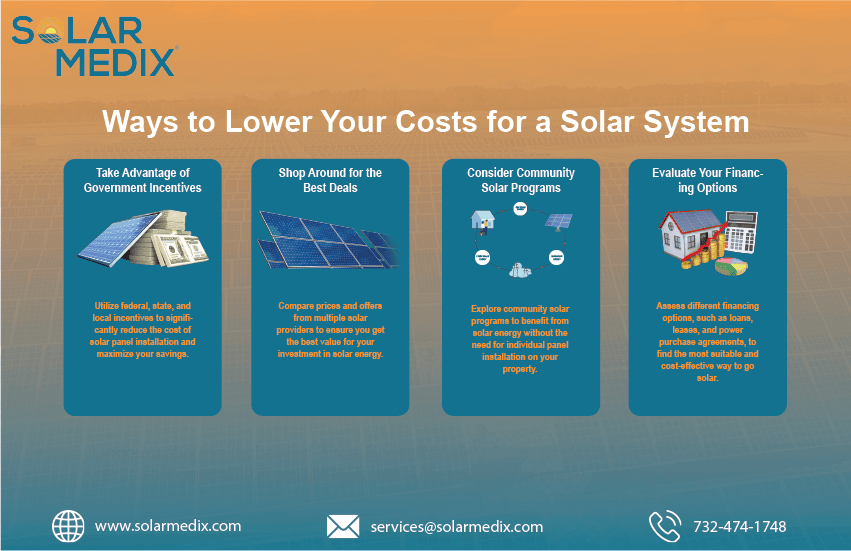
Ways to Lower Your Costs for a Solar System
It must be now clear that there’s nothing like a “free solar panel.” Nothing is free, right? There’s a fair cost for everything you own. You might be thinking of any other way to save money on solar installation. Right? What are the options without falling for these “free solar panel” offers?
You must read the methods below to have your answer:
Take Advantage of Government Incentives
Federal and state incentives are a great way to lower the cost of your solar system. The ITC, state rebates, and SRECs can provide thousands of dollars in savings. It can make solar more affordable for you.
Shop Around for the Best Deals
Consider getting quotes from multiple solar companies. You must also compare their offers while purchasing a solar panel.
Choose companies that provide competitive pricing, transparent terms, and good customer reviews. Online marketplaces like Solar Medix allow you to compare quotes and help you find the best deal.
Consider Community Solar Programs
If you cannot install solar panels on your roof, community solar programs are the best available option. These programs let you subscribe to a share of a local solar farm.
In turn, you will receive credits on your electricity bill for the energy produced by your share. This can provide significant savings without any installation on your property.
Evaluate Your Financing Options
Choose the best financial option for your long-term goals. Cash purchases will undoubtedly yield the highest savings. But loans and leases can make solar accessible to people with limited resources.
Contact Solar Medix today to help you choose the best solar panel installation option. Solar Medix experts have over 17 years of experience. We can offer you the best advice for choosing the right option.
Consider using the services of Solar Medix solar experts, especially if you are located in New York, New Jersey, Texas, or Massachusetts.
Conclusion
The idea of “FREE SOLAR PANELS” sounds great, but it usually means there are hidden costs or financing options involved. These deals often involve long-term commitments like leases or Power Purchase Agreements (PPAs).
To make solar energy affordable, government incentives like the Federal Solar Investment Tax Credit (ITC) and state rebates can lower costs.
Solar panels aren’t truly free, but with the right help and careful planning, they can be a smart and cost-effective choice. Contact Solar Medix now to book your consultation. Our experts will give you advice tailored to your specific needs and location. Our team will help you smoothly transition to solar power, taking away the hassle.
No state is eligible for truly free solar panels. However, incentive programs can be found in many states, including California, New York, and Massachusetts. These states are known for having robust incentives, including tax credits and rebates.
The term “free solar” is often used as a solar panel marketing tactic. But it’s not a scam in the traditional sense. These offers can sometimes mean zero-down financing options. We at Solar Medix insist on the importance of reading the fine print of the agreement. It will help you understand all the financial commitments involved.
To qualify for zero-down financing options, homeowners only need to have a good credit score and a suitable roof for solar installation. However, these specific requirements vary by company and location.
No, the government is not giving out free solar panels. However, it is offering many incentives, such as the Federal Solar Investment Tax Credit and various state and local programs. All of these can significantly reduce the cost of installing solar panels.
